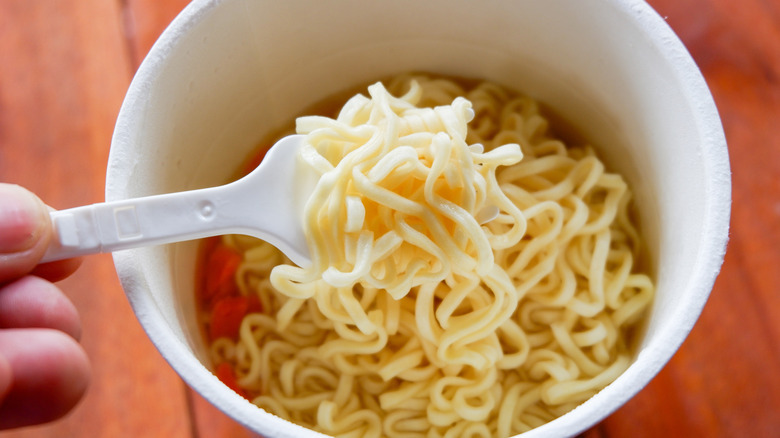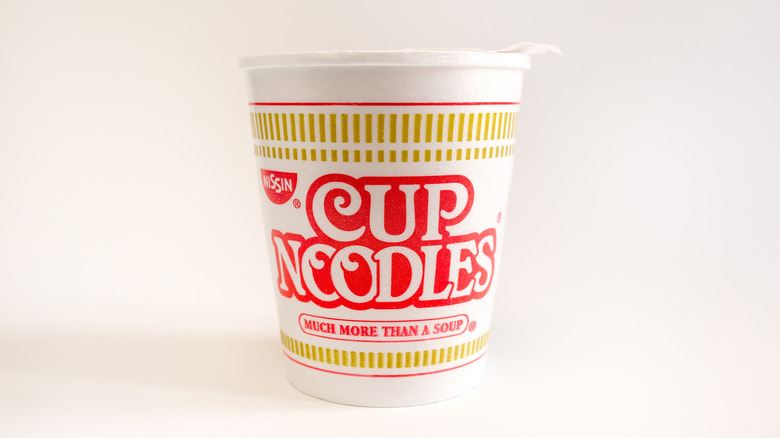Why You Shouldn't Microwave Most Instant Ramen Noodle Cups
Instant ramen in a cup is basically the lifeblood of the broke college student. Microwaveable anything pretty much falls into the category of perfect for anyone who is low on funds and lacks access to a full kitchen. But the catch with instant ramen is that the packaging clearly states you should not microwave the cup.
The "correct" (based on packaging instructions) way to make instant ramen in a cup is by boiling water separately and then pouring it into the cup of noodles. However, I will take the fall and admit on behalf of all former dorm inhabitants that I used to just pour room temperature water into the Styrofoam cup and pop it into the microwave. Unfortunately, there are safety risks and health risks to this method.
What are the risks of microwaving instant ramen?
In terms of safety risk, more than once I recall someone set off the fire alarm in my dorm by microwaving the cup without any water. Even if you do put water in the cup, though, there's a chance that the Styrofoam will not be able to withstand the heat of the microwave. Depending on how long you microwave the cup, it could melt or crack enough to cause a very hot spill.
As for health risks, heating up Styrofoam in a microwave could lead to you ingesting some pretty toxic substances. Styrofoam contains expanded polystyrene (EPS) foams and within that is a chemical called styrene which when heated up can seep into your food. Though ingesting styrene with your noodles won't affect your health immediately, over time it could. The CDC warns that breathing in high levels of the chemical can lead to symptoms such as tiredness, feeling drunk, slowed reaction time, concentration problems, or balance problems.
Knowing all this might make you wonder why instant ramen brands use Styrofoam cups in the first place. The Maruchan brand states on its FAQ page that Styrofoam cups are used because they retain heat best and are recyclable.
You can now microwave Cup Noodles
Like Maruchan, Nissin Foodsused Styrofoam cups for its Cup Noodles products, meaning they could not be safely microwaved. But that all changed in 2024, when the company announced that they were switching from Styrofoam to paper. Additionally, in Nissan's effort to become more ecofriendly and to make the dining experience better (and easier) for its consumers, Cup Noodles cups are now made of 40% recycled fiber and use a 100% recycled paper sleeve (rather than plastic wrap).
"For the first time ever, Cup Noodles will be microwavable, no longer requiring boiling water, thus significantly reducing cooking time. This allows consumers an even more convenient way to enjoy and cook their favorite instant ramen," Nissan stated in a press release. "Easily heated in 2 minutes and 15 seconds, the new packaging delivers a reliable, hassle-free meal option."
So, remember to check the packaging of your instant ramen to ensure you're making your food the right way — and keeping things safe for your surroundings and your health.


